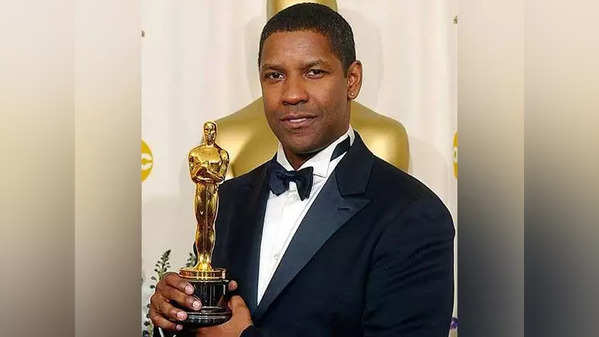Denzel Washington on politics: We’re all puppets in the age of information

19-Nov-2024 02:52 AM
In a candid interview, Denzel Washington criticizes the manipulative tactics employed by both sides of the American political spectrum. He argues that the information age has enslaved us, making it difficult to discern truth from spin. Reflecting on his own career, Washington acknowledges both triumphs and missteps, emphasizing the importance of learning, earning, and giving back.
Manipulation: Not Just for Politicians Denzel’s message? Both sides are playing the same game. Oscar-winning actor Denzel Washington isn’t just known for his legendary performances on screen—he’s also developed a knack for dissecting real-world issues. In a recent interview with The Sunday Times, Washington took aim at American politics , warning that the lines between right and left are blurred by manipulation. According to Washington, the public needs to open their eyes and understand that both political parties are masters of the same game. When editor Jonathan Dean quoted a line from Gladiator II—“Empires fall, so do emperors”—it wasn’t just a throwaway comment. Washington responded with a pragmatic take: “You know, it’s so easy to stand outside America and say this and that,” he said. “Turn around, you know? Pick a country. Any one.” Whether you’re in the U.S. or anywhere else in the world, politics is a complex web of broken promises and unfulfilled ideals. For Washington, the message is clear: don’t buy into the illusion that one side has it all figured out. Politics is messy everywhere, and no one has the monopoly on truth. The Information Age: We’re All in Chains Denzel says it’s not just the politicians—you’re in the cage, too. We live in a time where information is everywhere, but Washington believes that rather than giving us more freedom, it’s actually locking us in. “We’re all slaves to information now. We really are. We’re all slaves,” he said, calling out the digital age for what it is—a tool of control. With the rise of social media and 24/7 news cycles, it’s harder than ever to tell what’s real and what’s being spun. And according to Washington, it’s not just the politicians doing the spinning; the public is being manipulated every single day. With both sides of the political spectrum using the same tactics to sway public opinion, Washington’s not shy about calling it what it is: a game. "It’s all politics. All promises unkept,” he noted. He referenced his early work in Carbon Copy, where his character delivered a line that still resonates today: “Power to the people? Yeah, they had it once — it was called the Stone Age.” That was before the information revolution, of course, but the sentiment still holds: power is no longer in the hands of the people; it’s in the hands of those who control the narrative. Washington’s words are a stark reminder that in the information age, we’re all playing a game with no clear rules. The real question is: are we aware of who’s holding the strings? Hollywood and Politics: The Career Reflections of a Master Manipulator From gladiators to the grind, Washington pulls back the curtain on his journey. Amidst all the political commentary, Washington also took a step back to reflect on his own legendary career—a journey that has spanned decades and a range of iconic roles. When asked about his career highs and lows, Washington didn’t shy away from acknowledging the mistakes along the way. “After Malcolm X, I made some real clunkers. Look them up—I won’t say their names,” he quipped with typical candor. The 1990s weren’t exactly his finest hour, but he took responsibility for the choices he made. “I had responsibilities,” he explained. Sometimes, the roles weren’t artistic triumphs, but they paid the bills and kept him moving forward. Looking back on his career, Washington described it as a cycle of learning, earning, and returning. "You learn, you earn, and then you return.” For Washington, the 2000s marked the “earning” phase—films like Training Day and The Hurricane put him at the top of his game. With big roles came bigger paychecks, but also a new set of responsibilities: a family, a house, bills to pay. The grind of Hollywood, combined with real-life responsibilities, kept him grounded. And even as he reflected on his success, Washington remained humble about the process, acknowledging that while his career was about securing financial stability, it also provided him the opportunity to give back. It’s a balance of wealth, wisdom, and, as Washington would tell you, real-world experience. Takeaways and Big Screen Escapes At least the movies aren’t trying to manipulate us, right? As his interview wound down, Washington closed with a final piece of advice that brings it all back to reality: “Yeah. So go to the movies.” It’s a line that encourages the audience to take a step away from the political noise and immerse themselves in something a little more straightforward—entertainment. After all, in a world where every headline feels like an ad for manipulation, sometimes the movies are the only thing left that aren’t trying to pull your strings. And if anyone understands the importance of a good escape, it’s Denzel Washington. In the end, Washington’s interview is a reminder to stay sharp, question the narratives we’re fed, and remember that in the digital age, power is held by those who can manipulate the information. So maybe the real question isn’t who’s winning the political battle—it’s how do we break free from the chains of information?